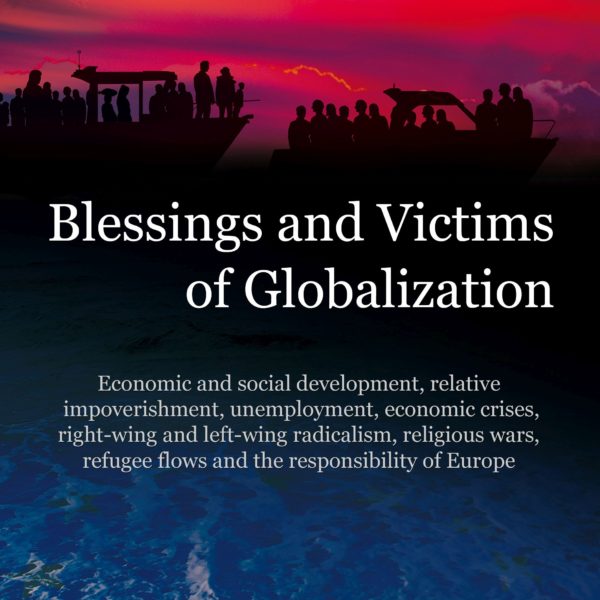Beschreibung
Author: Uwe Petersen
Blessings and Victims of Globalization
Economic and social development, relative
impoverishment, unemployment, economic crises,
right-wing and left-wing radicalism, religious wars,
refugee flows and the responsibility of Europe
Translated and updated
Original German Title:
Segen und Opfer der Globalisierung
Wirtschaftliche und gesellschaftliche Entwicklung,
relative Verarmung, Arbeitslosigkeit, Wirtschaftskrisen,
Links- und Rechtsradikalismus, Religionskriege,
Flüchtlingsströme und die Verantwortung Europas
Published 2017
Book cover design:
TomJay – bookcover4everyone / www.tomjay.de
Cover photo: © ginae014 – Fotolia.com
Date of publication: 2018
ISBN: 978-3-7469-1105-2 (Paperback)
ISBN: 978-3-7469-1106-9 (Hardcover)
ISBN: 978-3-7469-1107-6 (e-Book)
Publisher: tredition GmbH, Hamburg

